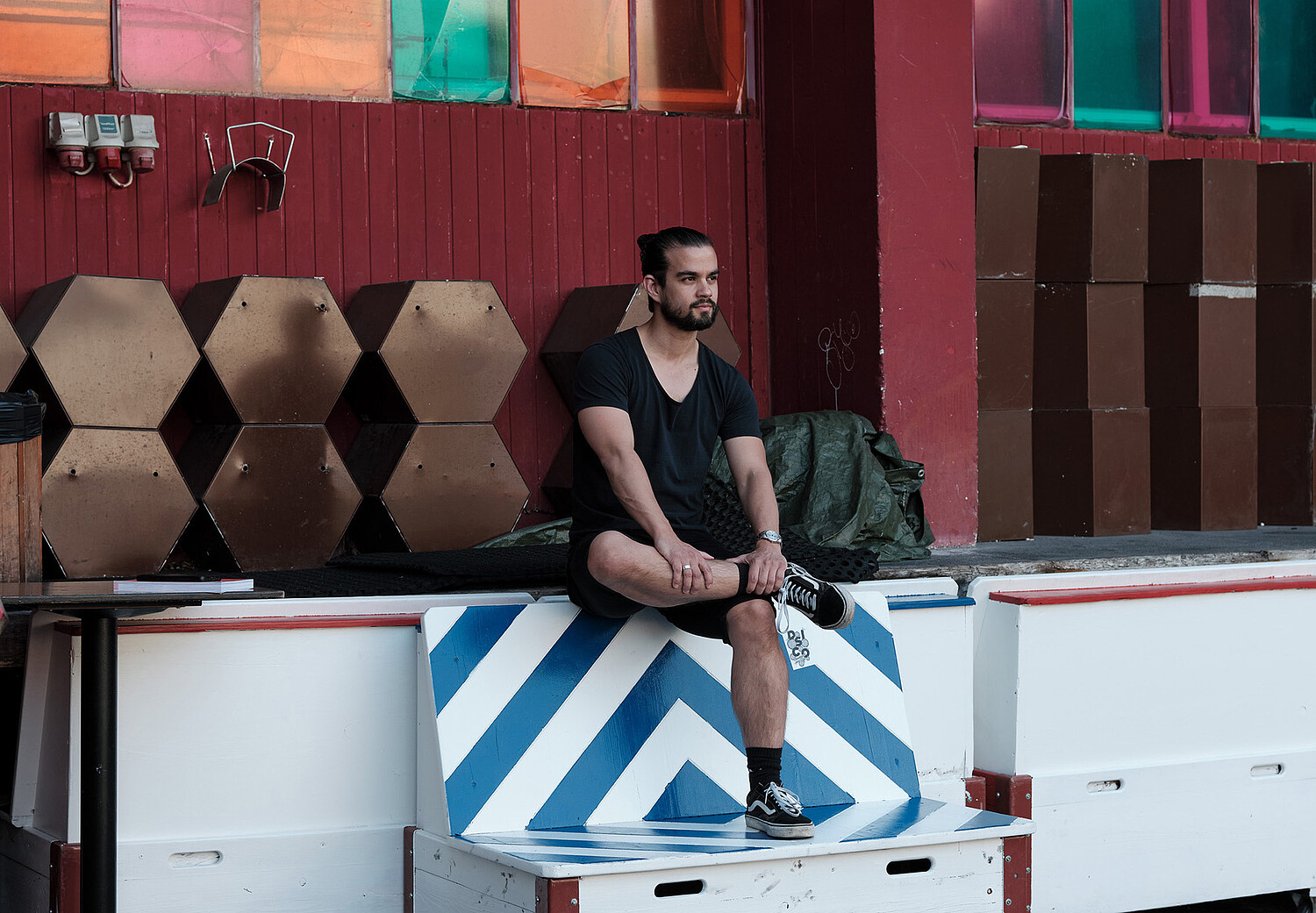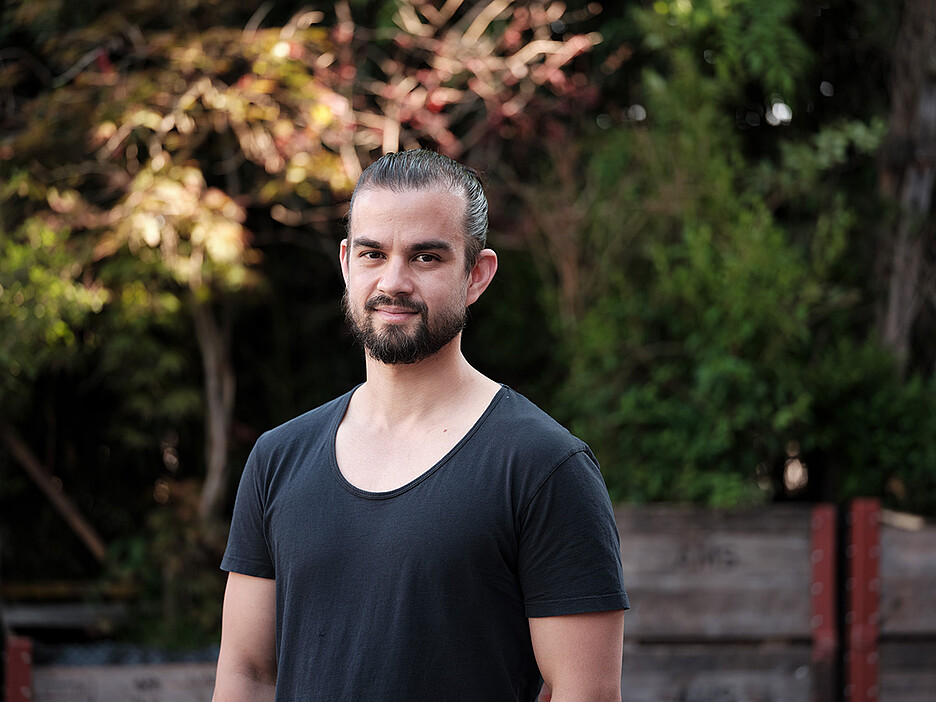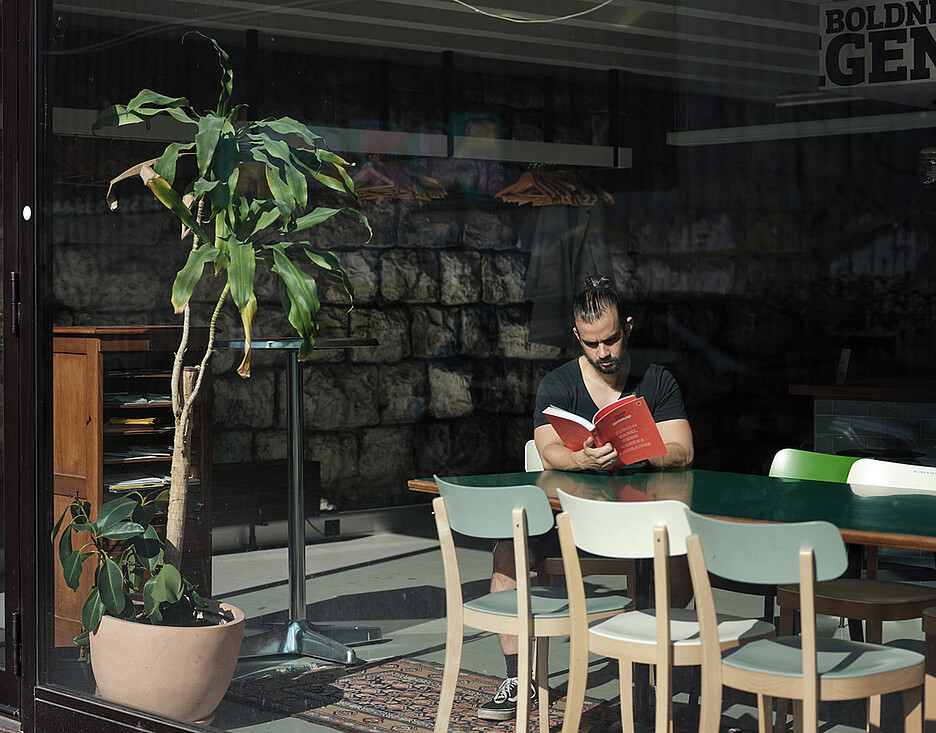
“You never know what the next day will bring”
Food technologist José Amado-Blanco co-founded the startup Yamo, which sells baby and children’s food made from natural ingredients. The ZHAW graduate is already tinkering with new ideas.
When José Amado-Blanco gets up in the morning, he says to himself “come on, let's go change the world!” And the 35-year-old has already done just that in one area. Together with Tobias Gunzenhauser and Luca Michas, the food technologist founded the startup Yamo seven years ago. They started with the production of healthy baby food back in 2018, and have since added fruit purées, bars and drinks for older children to their range. What began with playful research among friends is now a startup with 30 employees that not only sells its products in Switzerland, but also in many other European countries including Spain, Germany, the UK and Belgium.
This idea was born in 2016 and stemmed from the desire of the two co-founders Gunzenhauser and Michas to live vegan for a month. To help them avoid animal ingredients during this time, they studied the ingredient lists of various foods. What they read on the packaging of products like muesli, ravioli and spreads shocked them: they couldn't quite believe how many unhealthy additives the products contained! They contemplated which food would likely be the most natural? Their conclusion: baby food! But their assumption was wide of the mark: they also found dubious ingredients in the nutritional information of the food made for our little ones. They resolved to do things better.
Tinkering with potatoes and apples
To get their startup off the ground, the business administrator Gunzenhauser and the marketing manager Michas still needed somebody who knew something about food technology. José Amado-Blanco came to join the team through a personal contact. He had just completed his Master in Life Sciences in Food and Beverage Innovation at the School of Life Sciences and Facility Management.

Together, the three young entrepreneurs founded Yamo. In the early days, José Amado-Blanco was responsible for product development. “I kept nagging my former ZHAW lecturers until they provided me with a laboratory space and measuring equipment,” he recalls with a smile. Amado-Blanco purchased carrots, potatoes and apples and fiddled with recipes. The goal was to create an organic baby food that tastes great and is 100% natural – without any added sugar, added salts or concentrates.
“I kept nagging my former ZHAW lecturers until they provided me with a laboratory space and measuring equipment.”
The food technologist gave the result of his cooking skills to around 50 mothers for testing. He and his comrades-in-arms not only wanted to know from them what they thought about the new baby food, but also how they felt about the food they provided for their little ones in general. The young entrepreneurs realised that most mothers cooked the baby food themselves. Those who gave their children purchased baby food did so with a tinge of guilt. “It was here that we identified a gap in the market,” explains José Amado-Blanco: “Offering healthier baby food that parents can give to their children with a clear conscience.”
Preservation as a challenge
The sticking point was how to preserve the baby food. Conventional sterilisation processes that use heat not only kill microorganisms, but also destroy vitamins and change the product’s flavour and colour. Amado-Blanco found the solution in high-pressure pasteurisation. When this physical process is utilised, it is only undesired microorganisms and enzymes that are deactivated by the pressure, while the remaining quality characteristics of the food remain unchanged. However, high-pressure pasteurisation is expensive and is therefore used only in rare cases, such as for the preservation of guacamole, seafood and meat for the catering industry. In the case of baby food, the Yamo founders thought that parents may be prepared to pay a little more for good quality.
“I’m a strategist who knows something about the product and also ensures that things are going well financially.”
And they were right: when they launched their baby foods on the market in 2018, the sales curve quickly turned up sharply. The founders soon developed further products. These are produced according to Yamo's recipes by partners abroad: the baby food in the Netherlands, the fruit purées in Spain, the bars in France and the Tetra Paks in Germany. The products are now often also sold in large supermarket chains; in Switzerland, for example, at Coop and Alnatura. However, Yamo generates the largest share of its turnover via online shipping.
New tasks for Amado-Blanco
It was not only the startup that underwent rapid change, but also the task performed by Amado-Blanco, who transitioned from his role as tinkerer to a management post. This was even more to his liking. He enjoys dealing with the big picture and with innovations that are as complex as possible. “I’m a strategist who knows something about the product and also ensures that things are going well financially,” he says. Amado-Blanco shares that it is this combination of science and business that interests him and that this is what he learned during his training.

He transitioned to the field of food technology after dropping out of his biology studies. As natural sciences alone were too restrictive for him and too far removed from practice, he completed a Bachelor in Food Science and Management at the Bern University of Applied Sciences before subsequently doing his Master’s degree at the ZHAW in Wädenswil. He travelled to Honduras for his Master’s thesis, where he attempted to find out why a third of the cocoa harvested there went mouldy. Amado-Blanco travelled through half of Central America in order to learn about the experiences of other cocoa producers. He found that the Honduran sun is not strong enough to dry the cocoa. The solution: mechanical drying systems. Finally, the student helped local engineers in designing and building this equipment.
Inspired by two ZHAW lecturers
During his studies, José Amado-Blanco realised that he is a founder in nature. “I was inspired by two lecturers at the ZHAW in Wädenswil,” he says. “They had both founded startups themselves and we had very interesting conversations about this.” If you want to establish a startup, you need one quality above all others, states Amado-Blanco: “You have to feel comfortable when faced with uncertainty. You never know what the next day will bring.”
“If your work is fulfilling, then you also need less compensation in return.”
Many would think that a startup might be a scene of bedlam. However, Amado-Blanco hits back at this assumption: “That isn’t the case. But if a company does grow quickly, you can’t keep up when it comes to adapting its structures.” He states that a structure that has been developed for three people will not work for six. And no sooner have you adapted it to cater for six employees than you’ve already got a workforce of ten. What's more, a change, such as a new competitor on the market, may lead to a major crisis, he continues. “And then the employees and investors look to the founders to respond. This is something you have to be able to live with.”
No need for a work-life balance
On top of this, there is the burden on your time. José Amado-Blanco worked an average of 70 hours per week for seven years, sometimes even clocking up 80 hours. During this time, he took only five weeks of holiday – in total. But for him, this was the right this to do: “I am not a fan of the term work-life balance. I don’t make a distinction between work and leisure, but rather try to combine the two in a meaningful way.” Amado-Blanco shares that his goal is always to work in such a way that he would continue in precisely the same manner even if he was no longer dependent on being paid. “If your work is fulfilling, then you also need less compensation in return,” he emphasises.
And yet Amado-Blanco has just taken some time off: he recently returned from a three-month trip to Asia. Before setting off, he left the operational side of Yamo’s business. However, he still remains a partner. “It’s time for a change,” he says. He does not yet know where his next professional adventure will take him. He is applying for advertised roles, but in an ideal world he would like to launch a startup again. “I am working on three ideas,” he reveals. While he is happy to share that two of them are in the food sector, José Amado-Blanco doesn't want to say any more just yet. The only thing that is certain is that in future he would like to look after his one-year-old niece regularly.
0 Comments
Be the First to Comment!